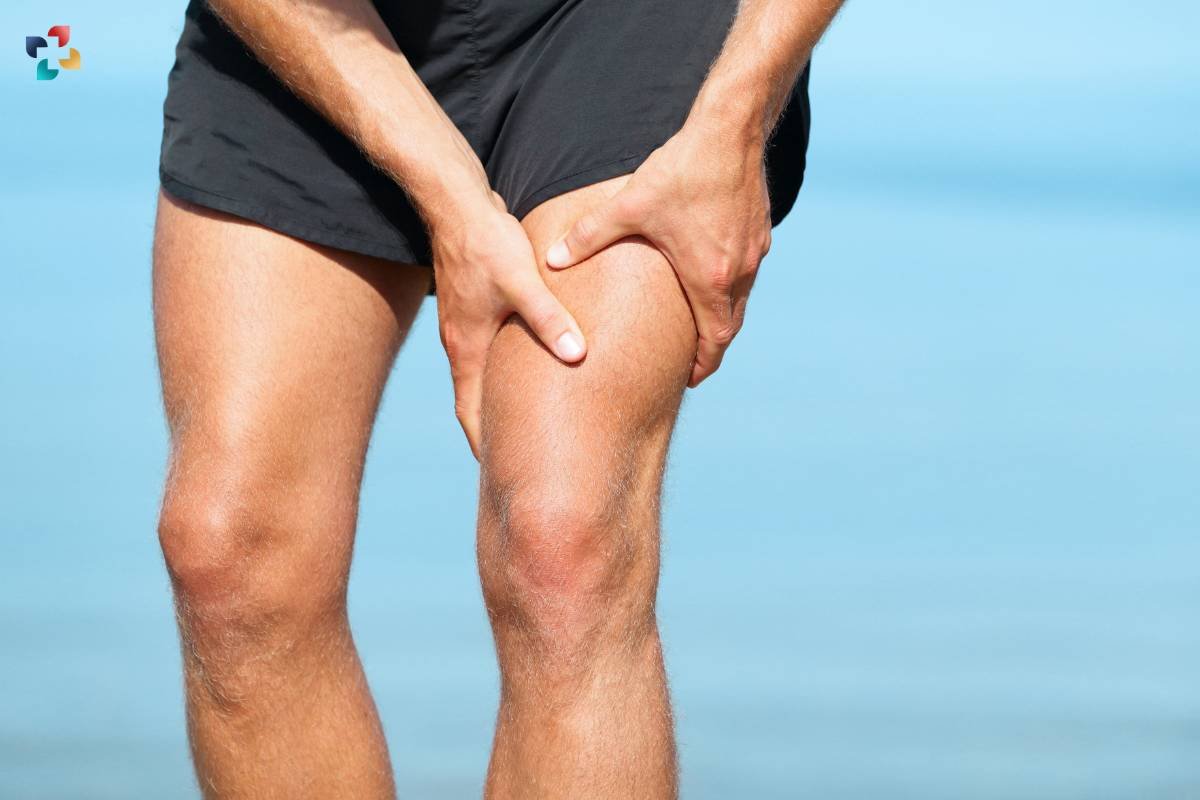Intercostal Muscle Strain is a common yet often misunderstood injury that can cause significant discomfort and affect daily activities. In this comprehensive guide, we delve into the causes, symptoms, and treatment options for intercostal muscle strain to provide a better understanding of this condition.
Anatomy of Intercostal Muscles
The intercostal muscles are a group of muscles situated between the ribs and play a crucial role in facilitating breathing. The primary function of these muscles is to assist in expanding and contracting the chest cavity during respiration. The intercostal muscles are divided into three layers: external, internal, and innermost intercostal muscles.
The external intercostal muscles are the most superficial layer and are oriented obliquely downward and forward between the ribs. During inhalation, these muscles contract, lifting the ribs upward and outward, which increases the volume of the chest cavity and allows air to flow into the lungs. This action is essential for expanding the thoracic cavity and creating negative pressure within the lungs, facilitating inhalation.
The internal intercostal muscles lie beneath the external intercostals and are oriented in the opposite direction, running obliquely downward and backward between the ribs. These muscles primarily assist in forced exhalation by depressing the ribs downward and inward, reducing the volume of the chest cavity and expelling air from the lungs. The internal intercostals also play a role in stabilizing the rib cage during vigorous activities such as coughing, sneezing, or heavy lifting.
Deeper still are the innermost intercostal muscles, which are located just beneath the internal intercostals. These muscles have fibers that run perpendicular to those of the internal intercostals and are primarily involved in supporting the thoracic cage and providing structural stability to the rib cage during movements of the trunk.
Overall, the intercostal muscles work synergistically to facilitate the mechanical process of breathing, ensuring efficient exchange of oxygen and carbon dioxide in the lungs and maintaining optimal respiratory function.
Causes of Intercostal Muscle Strain
Intercostal Muscle Strain occurs when the muscles are stretched or torn due to sudden or repetitive movements, such as twisting, lifting heavy objects, or participating in sports activities without proper warm-up. Other common causes include coughing, sneezing, or even prolonged periods of coughing due to respiratory infections.
Intercostal muscle strain can occur as a result of various activities or conditions that put excessive stress on the intercostal muscles beyond their normal range of motion. One common cause is sudden or forceful movements that involve twisting or bending the torso, such as during sports activities like golf, tennis, or weightlifting. Inadequate warm-up or improper technique during these activities can increase the risk of muscle strain.

Lifting heavy objects without proper body mechanics can also lead to intercostal muscle strain, as it places significant strain on the muscles of the chest and abdomen. Individuals who engage in occupations or activities that require repetitive or prolonged bending, twisting, or lifting may be particularly susceptible to developing muscle strain over time.
Coughing or sneezing forcefully can also strain the intercostal muscles, especially if the action is prolonged or occurs frequently due to respiratory infections such as the common cold or bronchitis. Chronic conditions such as asthma or chronic obstructive pulmonary disease (COPD) can also contribute to repeated bouts of coughing, increasing the risk of muscle strain in the chest area.
Additionally, sudden trauma or impact to the chest, such as from a fall or sports-related collision, can cause the intercostal muscles to stretch or tear, resulting in strain. It’s essential to be mindful of these potential causes and take appropriate precautions to prevent muscle strain, such as practicing proper body mechanics, warming up before physical activity, and seeking prompt medical attention for respiratory conditions to minimize the risk of intercostal muscle strain.
Symptoms of Intercostal Muscle Strain

The symptoms of Intercostal Muscle Strain can vary depending on the severity of the injury but typically include localized pain or tenderness along the rib cage, which may worsen with movement, deep breathing, or coughing. Some individuals may also experience muscle spasms, bruising, or swelling in the affected area.
Diagnosis of Intercostal Muscle Strain
Diagnosing Intercostal Muscle Strain usually involves a thorough physical examination by a healthcare professional, including assessing the area for tenderness, swelling, or bruising. Imaging tests such as X-rays or MRI scans may be ordered to rule out any underlying fractures or other injuries.
Treatment of Intercostal Muscle Strain
Treatment for Intercostal Muscle Strain typically involves a combination of rest, ice therapy, pain management, and gentle stretching exercises to promote healing and relieve discomfort. Nonsteroidal anti-inflammatory drugs (NSAIDs) may be prescribed to alleviate pain and reduce inflammation. In severe cases, physical therapy or corticosteroid injections may be recommended to help speed up the recovery process.
Prevention of Intercostal Muscle Strain

Preventing Intercostal Muscle Strain involves practicing proper lifting techniques, warming up before engaging in physical activities, and avoiding sudden or excessive movements that could strain the muscles. Maintaining good posture and incorporating regular stretching exercises into your routine can also help reduce the risk of injury.
Conclusion
Intercostal Muscle Strain is a common injury that can cause significant discomfort but is typically manageable with conservative treatment methods. By understanding the causes, symptoms, and treatment options for intercostal muscle strain, individuals can take proactive steps to prevent and manage this condition effectively. If you experience persistent or severe pain, it is essential to seek medical attention for proper evaluation and treatment.
FAQs
1. What are the common symptoms of intercostal muscle strain?
Common symptoms include sharp or stabbing pain in the chest or rib cage, discomfort when breathing deeply or coughing, tenderness or swelling in the affected area, and muscle spasms.
2. How is intercostal muscle strain diagnosed?
Diagnosis typically involves a physical examination to assess for tenderness, swelling, or bruising in the chest area. Imaging tests such as X-rays or MRI scans may be ordered to rule out other potential causes of chest pain.
3. What are the treatment options for intercostal muscle strain?
Treatment often involves rest, ice therapy to reduce inflammation, over-the-counter pain relievers such as ibuprofen or acetaminophen, and gentle stretching exercises to promote healing. In severe cases, physical therapy or corticosteroid injections may be recommended.
4. How long does it take to recover from intercostal muscle strain?
Recovery time varies depending on the severity of the strain and individual factors such as age and overall health. In mild cases, symptoms may resolve within a few days to a week with conservative treatment. More severe strains may take several weeks to heal fully.
5. What precautions should be taken to prevent intercostal muscle strain?
To prevent intercostal muscle strain, it’s essential to practice proper body mechanics when lifting heavy objects, warm up before engaging in physical activity, and avoid overexertion. Maintaining good posture and participating in regular stretching and strengthening exercises can also help prevent muscle strain.








